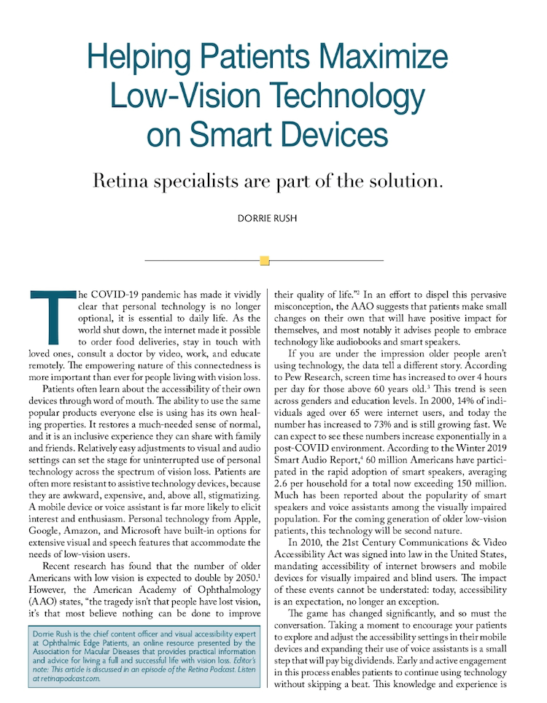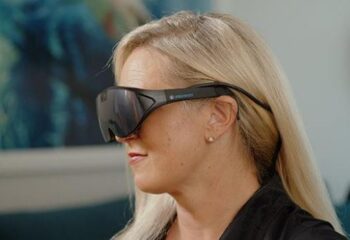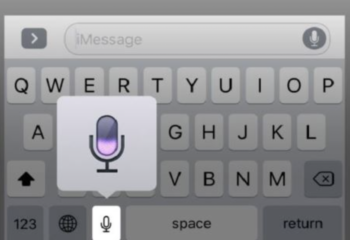In early 2020 I was invited to write an article for the ophthalmic journal, Retinal Physician. The prospect was delightful, because there is only one thing I enjoy as much as enlightening patients about the best solutions in low vision technology, and that is to elevate the awareness of their physicians. The article was submitted at the end of March just as the COVID pandemic was kicking into high gear. The timing for this topic was now in question and I wondered when would it again be relevant? The rebound was quicker than I expected, and in May the editor offered an opportunity to reframe the conversation for a pandemic world. We did that and the article was published in the July/August 2020 issue.
The intention of this article is to bring physicians up to date on the proliferation of smart technology options and apps for compensating low vision. Patients are far more enthusiastic to embrace everyday accessible technology, as opposed to expensive and stigmatizing assistive devices. One of the powerful benefits, it helps retain, or recover, a semblance of normal. As the months and years move forward we will find the majority of patients are engaging with some of these devices.
The article’s revelations were discussed on the Retina Podcast by Drs. Jay Sridhar, Priya Vakharia and Shriji Patel. All three agreed this was important information to share with their patients and that they probably had underestimated their older patients use of technology. Dr. Sridhar started the conversation by saying, “a whole new world opens up when you look at these apps that are available.” Dr. Vakharia said she, “was just blown away, and it might just be because it’s so simple and so easy. The technology is technology that patients have, and I just never thought about it.” She thought the Ai apps were “purely phenomenal” enabling patients to have a level of independence “I think low vision aids simply cannot provide.” Dr. Patel acknowledged that most of his patients carry an iPhone or Android smartphone and “they may not realize how much power they have in hand.”
The big question is how to help patients get this information? And the answer is, start talking about it.
Read the full article on Retinal Physician here.








